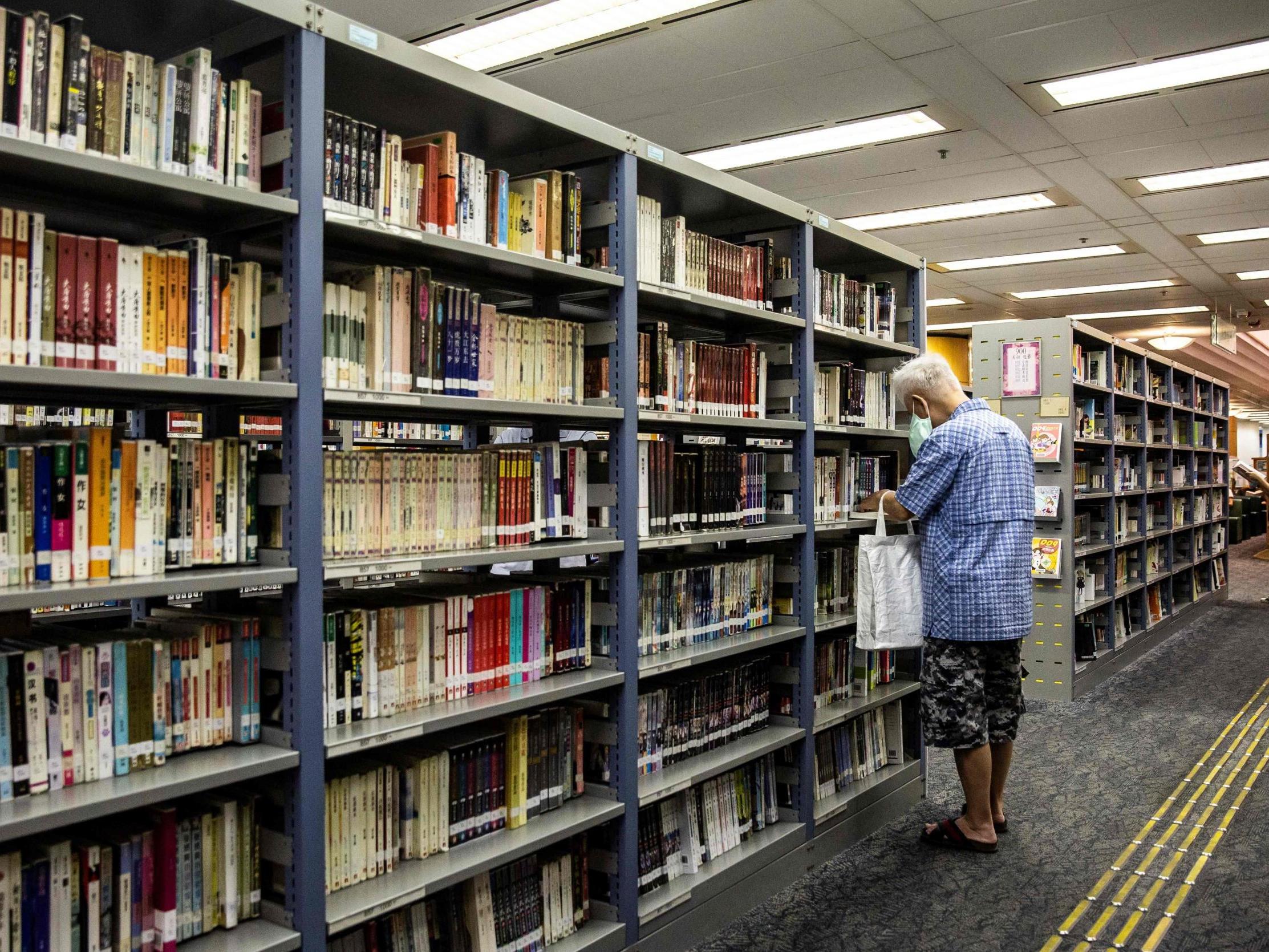Pro-democracy books removed from Hong Kong libraries in wake of China’s new national security law
Top US diplomat says legislation will chip away at ‘fundamental freedoms’

Your support helps us to tell the story
From reproductive rights to climate change to Big Tech, The Independent is on the ground when the story is developing. Whether it's investigating the financials of Elon Musk's pro-Trump PAC or producing our latest documentary, 'The A Word', which shines a light on the American women fighting for reproductive rights, we know how important it is to parse out the facts from the messaging.
At such a critical moment in US history, we need reporters on the ground. Your donation allows us to keep sending journalists to speak to both sides of the story.
The Independent is trusted by Americans across the entire political spectrum. And unlike many other quality news outlets, we choose not to lock Americans out of our reporting and analysis with paywalls. We believe quality journalism should be available to everyone, paid for by those who can afford it.
Your support makes all the difference.Authorities have removed books by pro-democracy writers in Hong Kong‘s public libraries, less than a week after China introduced a controversial new national security law.
The law, which came into effect on Tuesday evening, allows authorities to punish crimes including secession, subversion and terrorism with up to life in prison.
According to the department which runs the city’s public libraries, certain books are not available because they are under review in the wake of the new legislation.
The Leisure and Cultural Services Department said in a statement that the libraries ”will review whether certain books violate the stipulations of the National Security Law.”
“While legal advice will be sought in the process of the review, the books will not be available for borrowing and reference in libraries,” the statement added.
The authors whose books are affected include the pro-democracy activist Joshua Wong and the politician Tanya Chan.
Over the weekend, Mr Wong tweeted: “Less than a week after #NationalSecurityLaw has been put in place, #HongKong’s public libraries started to put books under review and suspend them from lending, including two of mine published in 2013 and 2015.”
The Chinese legislation has been criticised by foreign governments, lawyers and pro-democracy figures, who believe it will erode freedom in the former British colony.
The top American diplomat in Hong Kong described the security law on Monday as a “tragedy”, which would remove ”fundamental freedoms” and generate ”atmosphere of coercion and self-censorship.”
Hanscom Smith, US consul general to Hong Kong and Macau, said: ”Using the national security law to erode fundamental freedoms and to create an atmosphere of coercion and self-censorship is a tragedy for Hong Kong.”
“Hong Kong has been successful precisely because of its openness and we’ll do everything we can to maintain that,” he added.
However, Chinese officials have responded to concerns about the new law by saying it would not target freedom of speech and would only affect a few “troublemakers”.
Speaking about the removal of books from public libraries, executive councillor Ronny Tong told Radio Television Hong Kong on Monday that the government is using “self-restraint” to ensure they comply with the new law.
The first person to be arrested under the new law was Tong Ying-kit, 23, who allegedly drove a motorbike into policemen while carrying a flag with the message ”Liberate Hong Kong, revolution of our time”. On Friday, the local government said this slogan was illegal.
Additional reporting from Reuters
Join our commenting forum
Join thought-provoking conversations, follow other Independent readers and see their replies
Comments